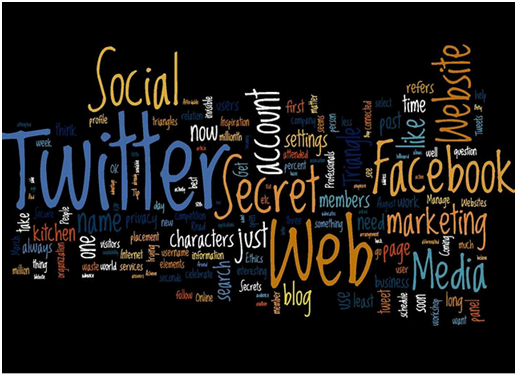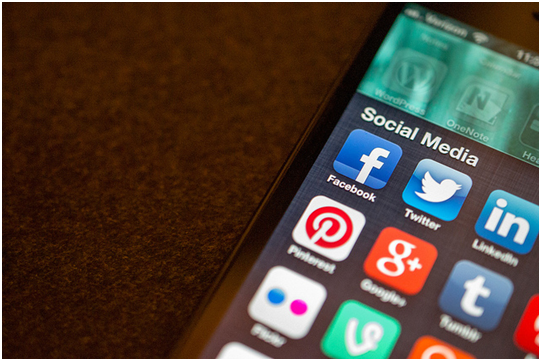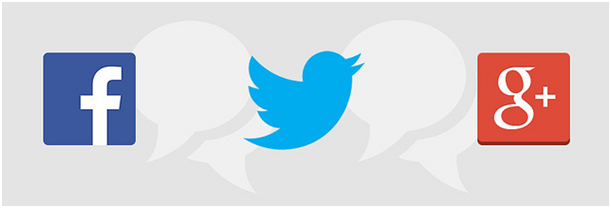The main difference between social media and digital marketing is that social media is included in digital marketing. A lot of people today wrongfully believe that if they engage on main social media platforms they perform digital marketing, which is not necessarily true. Contrary to popular belief, a successful digital marketing campaign is made up of several other components, social media included.

The links between digital marketing and social media
In layman’s terms, digital marketing is all about building awareness and advertising a product or band by making use of numerous digital channels, not just social media. Main components include:
- Internet marketing – Search engine marketing (SEM), web, mobile markets (Apple Store and Google Play), email marketing, smartphones, online banner marketing and social media.
- Offline digital channels – Digital billboards, TV, SMS, radio, and word-of-mouth
As far as social media is concerned, we must mention that it is a fundamental branch of internet marketing. The rise of platforms such as Twitter and Facebook has completely revolutionised the way people interact, shop, advertise their business and of course, socialize. Social media is a broad term we mostly use to describe online platforms that connect people in exchange of information. Google+, LinkedIn, Tumblr, Pinterest, YouTube and Pinterest have become just as important as Facebook. In fact, if you own a website the best way to make yourself known in the online environment is to connect to all.

Main differences between social media and digital marketing
Digital marketing can survive without social media, however social media can’t thrive without digital marketing. That’s because marketing in the online environment includes social media. A multi-channel approach online renders better results, and companies can choose to work with channels that best complements their business mantra. Mobile ads, SEM, SEO and banner ads are all digital. They’re not included in social media. This means that digital alone – from a conventional perspective – is a sole one-way marketing approach.
On the other hand, we have Pinterest, Facebook, Instagram and Twitter just to name a few, which are social media platforms. However, without engagement and interaction using digital marketing, these platforms would be useless when attempting to market a business. Sharing and commenting equals social media. The approach can only work when combined with additional media channels, meaning digital marketing in order to create a bigger impact and grab more attention.
The power of digital marketing over social media
Since social media depends on digital marketing, it’s safe to say that social media can’t live on its own in the online environment. Digital marketing alone, is all about online promoting. Many powerful and top-tier technologies are included in digital marketing, including email, websites, apps, messages, and sharing information. The latter approach is directly linked to social media websites.
Nowadays, most businesses operate online. Even though they have a physical office and still conduct offline marketing, they must have an online presence as well in order to boost awareness and improve leads. Unlike social media, digital marketing is a proven marketing strategy, and social media is an important part of that strategy. The array of online channels used to advertise is numerous, whereas social media marketing alone uses different social platforms. As opposite to social media, digital marketing works just as well in the offline environment. It’s not that powerful, but it works. Offline, social media has zero value.

Social media – the favourite branch of digital marketing
Digital marketing loves social media; and social media can’t live without digital marketing, so it’s a win-win. Whether we like it or not, these two are closely tied together. If you want your business to thrive, you need both. It’s the only way to make yourself stand above the competition. Companies of all shapes and sizes need to adopt the right digital marketing tactics to thrive. Decide on a channel – or multitude of channels – that best match with your business goals. Websites need to be linked to both Twitter and Facebook to generate organic visitors. But they also need to use direct mail campaigns and offline strategies to make themselves known to the masses offline.
When mixed together, social media and digital marketing work the best. Your new startup will thrive, online visitors will become paying customers and your website will end up on the first pages of major search engines. But that doesn’t mean offline tactics don’t matter; because they do, especially when attempting to appeal to local communities.
This is a guest article by Denny Averill & DataDial.net

